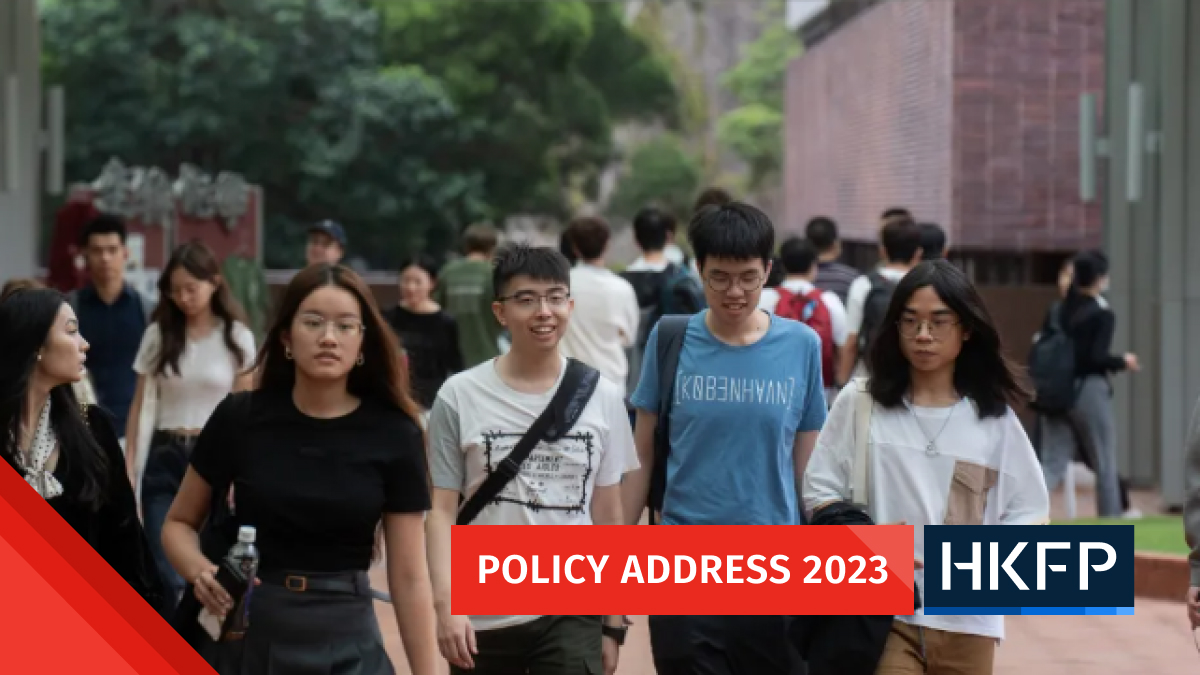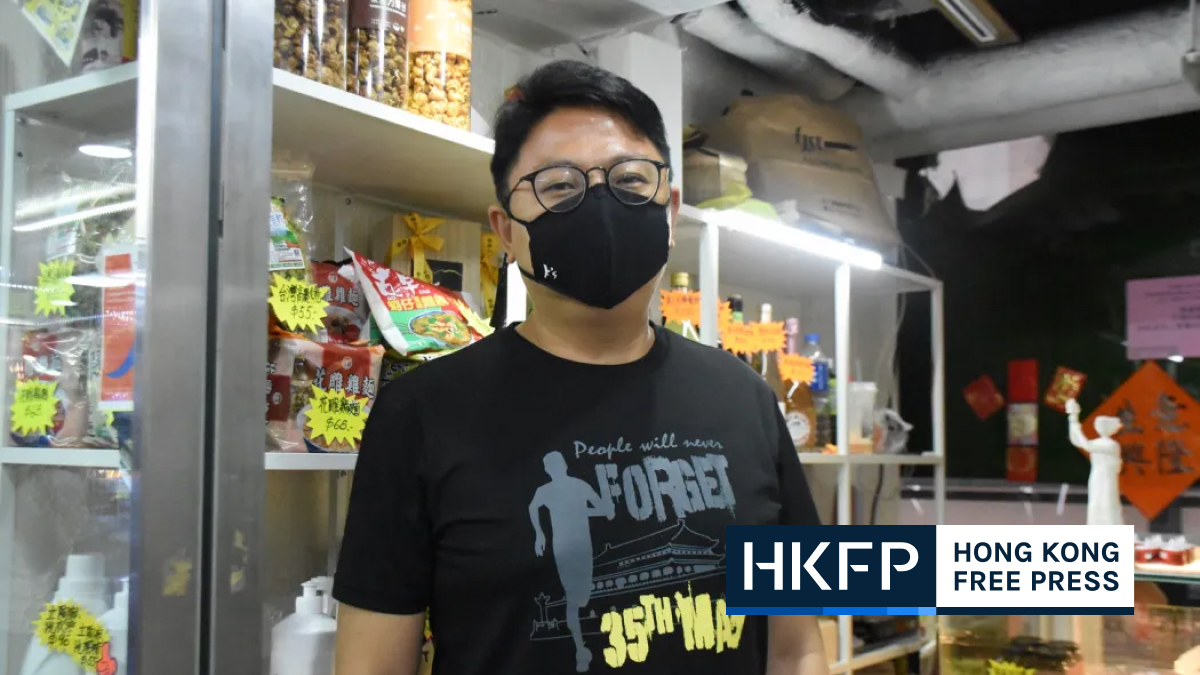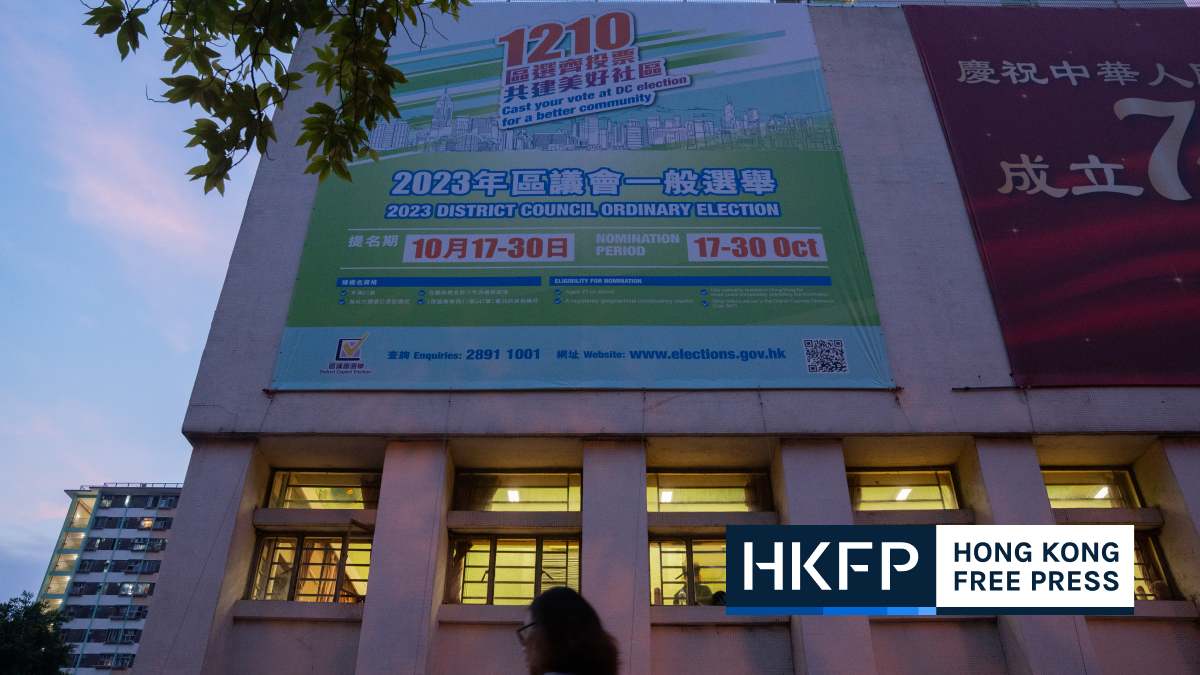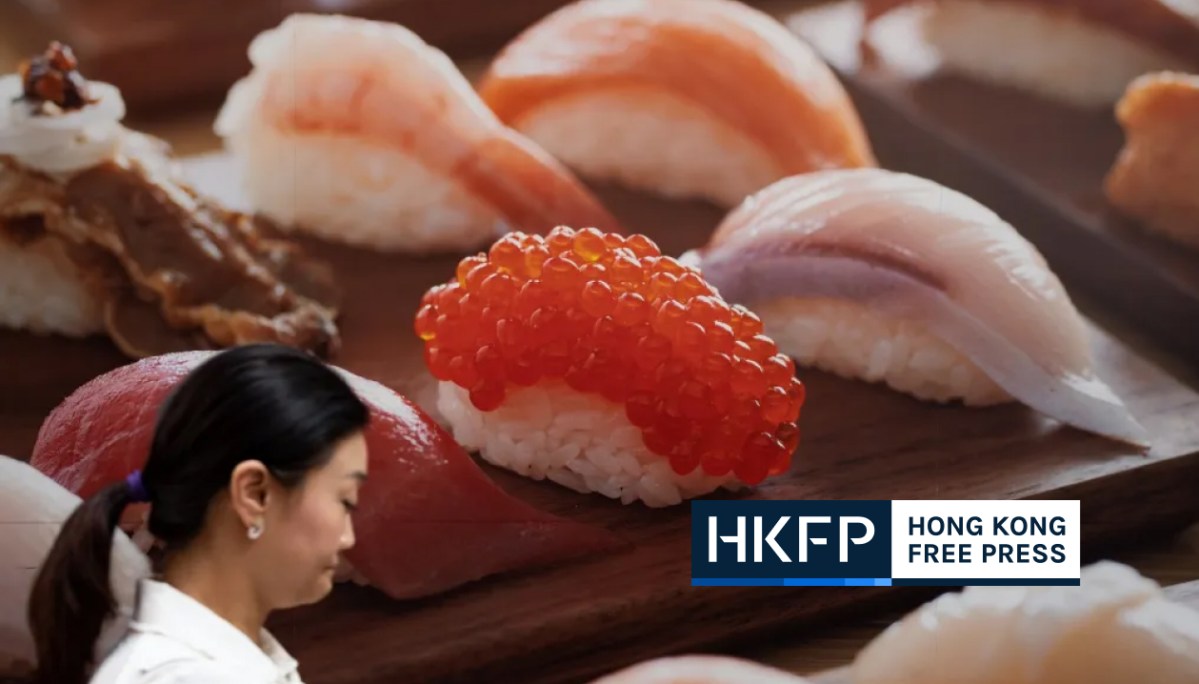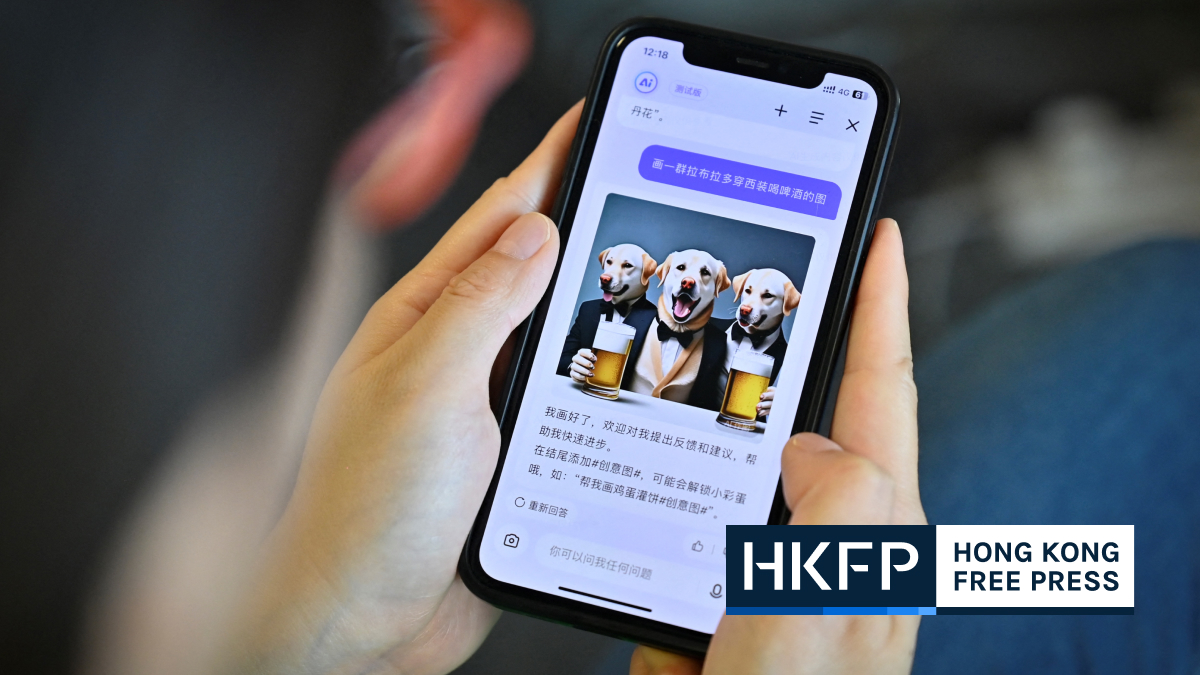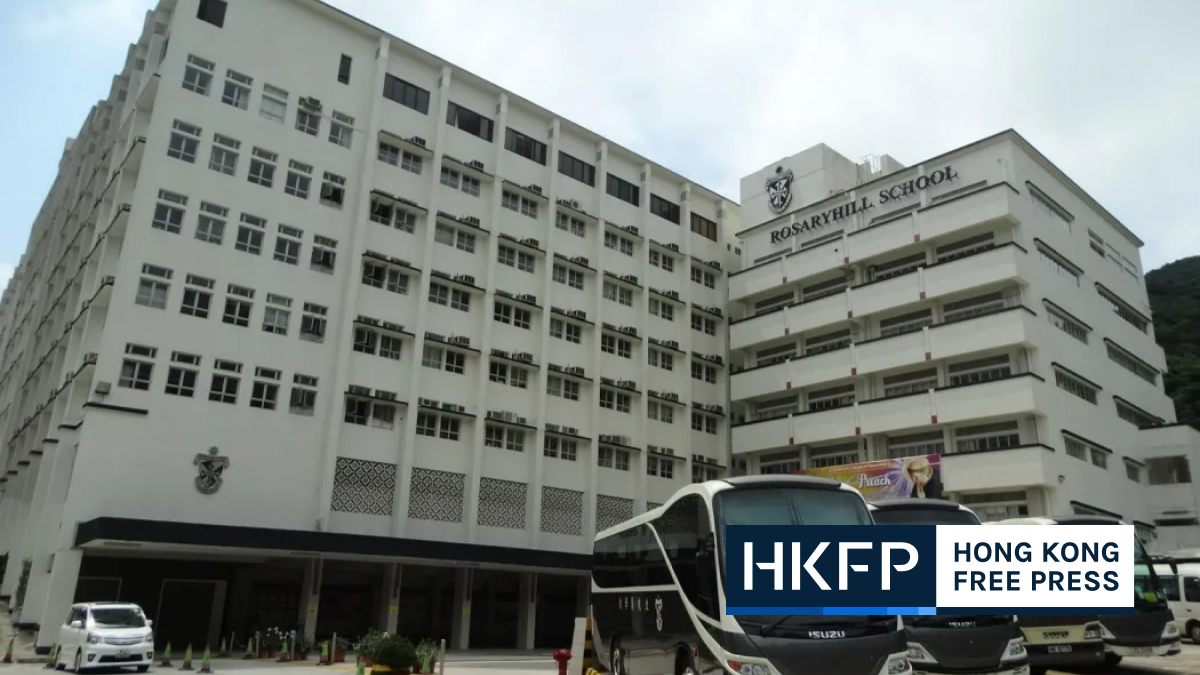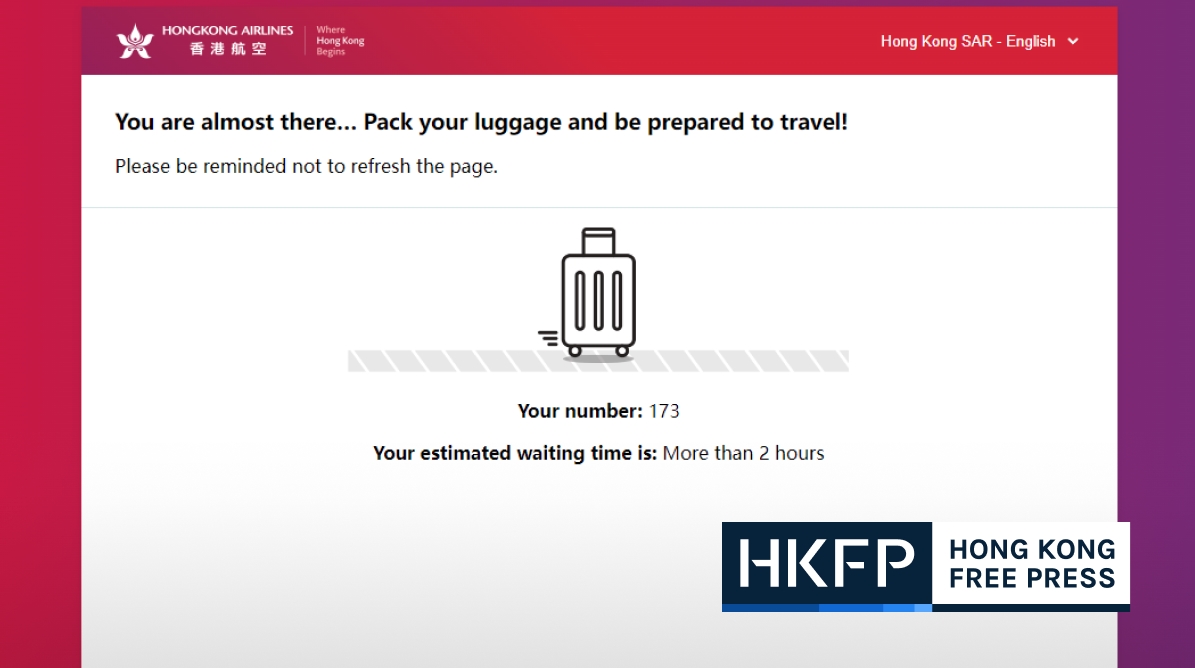Like much else in Hong Kong, the media landscape has changed dramatically since Beijing imposed a sweeping national security law on the city in 2020, with outlets closed and journalists put on trial.
As a result, self-censorship is increasingly inevitable, says journalism scholar Francis Lee – but that should not be seen as surrender, particularly for those who strive to maintain space for professional journalism.
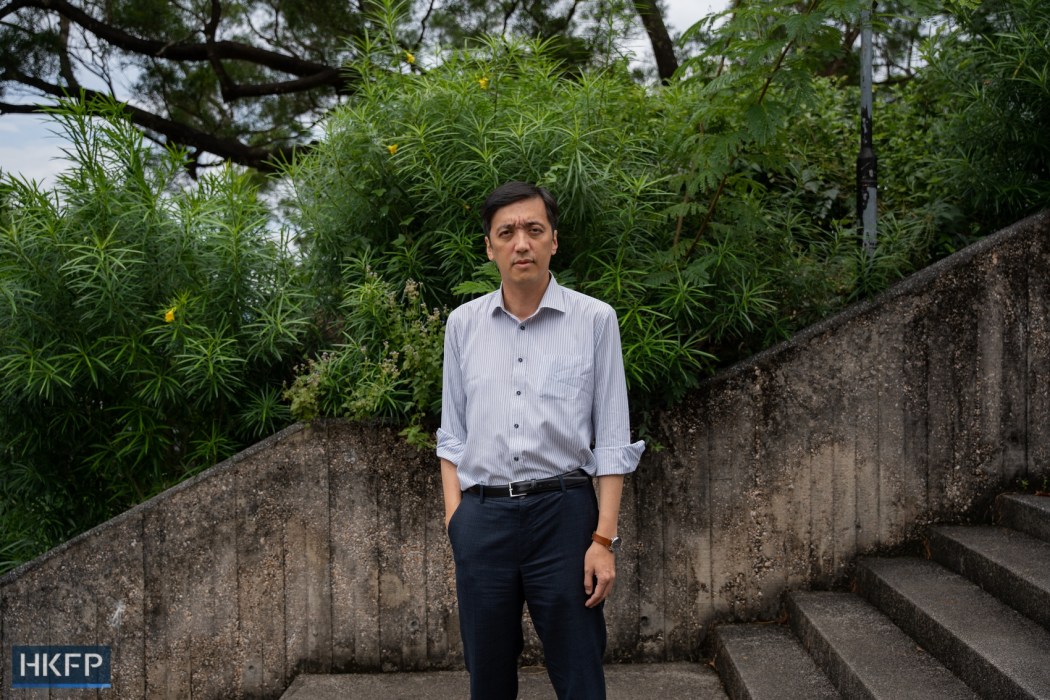
Lee, a professor at the Chinese University of Hong Kong’s School of Journalism and Communication, has spoken extensively to journalists in the city about how they “manage risk” amid increasing legal and political uncertainty.
“To simply avoid risk is not risk management,” Lee told HKFP in an interview conducted in Cantonese after his findings were published in July. “To manage risk is to take risks when necessary.”
The emergent “risk culture” in the city was not limited to those in the media, he added. “Today, anyone who is still involved in the public sphere in Hong Kong will constantly assess and manage risks,” Lee said. That also applied to him.
As a scholar specialising in journalism and social movements, Lee has played an active role in the city’s public sphere. He was an expert witness for the defence in the city’s first national security trial, when he presented research on the controversial “Liberate Hong Kong, revolution of our times” protest slogan.
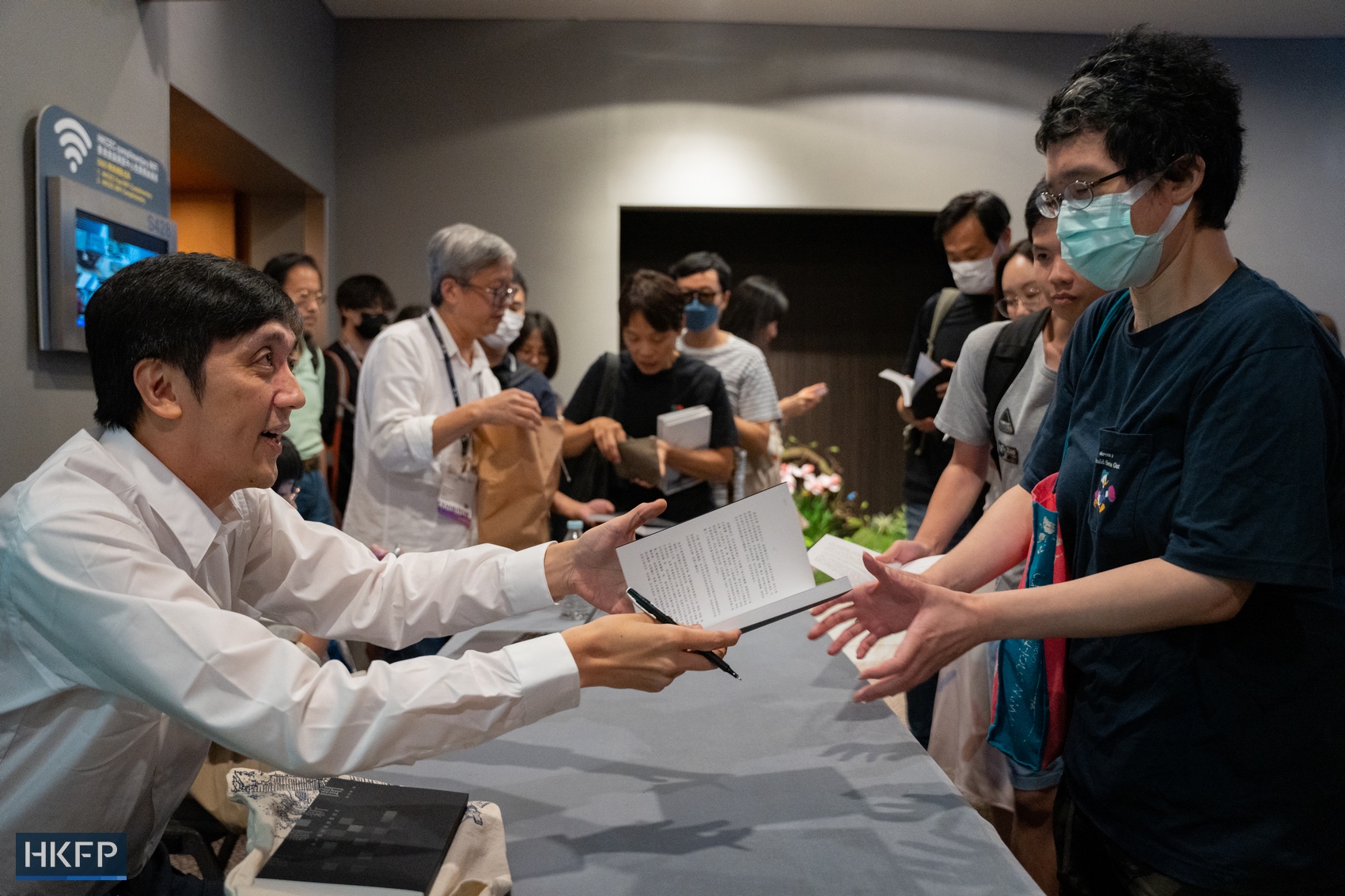
The court later ruled that the phrase was capable of inciting secession, one of four crimes listed under the national security law. Since its implementation, the legislation has been criticised internationally for its broad definitions and alleged overuse, while the government maintains it has helped restore order in the city.
Unlike many public intellectuals who have chosen to keep a low profile or leave the city, Lee has stayed, and continues to study civil society and give talks on press freedom in Hong Kong. This summer, he published a Chinese-language book on how to read the news, covering topics such as media funding, political affiliation, professionalism, and disinformation.
“When there is something you really want to do, you just have to try it. You know things may be different in Hong Kong today, and you might feel a bit worried or scared, but in the end you just have to give it a go,” Lee said.
‘Typhoon protection measures‘
While academia often lags behind social changes because of the time it takes for researchers to secure funding, Lee has tried to keep pace, closely following Hong Kong’s changing political landscape. He has studied the media’s role in a mass protest in 2003, the public memory of the 1989 Tiananmen crackdown, and the internet’s role in more recent movements.
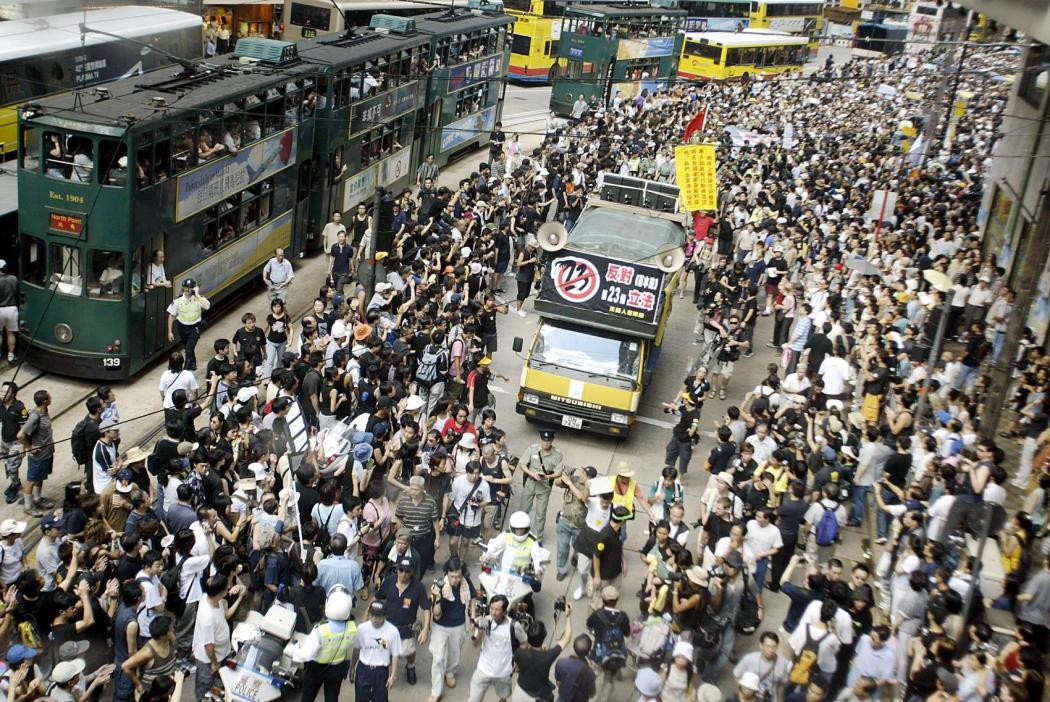
“You just try to study things as they happen. Big-scale surveys and telephone interviews do cost a lot, but just going to the scene and doing interviews is affordable,” Lee said. “Sometimes, [we] need to pay for it ourselves first and consider funding applications later.”
At the height of the 2019 protests and unrest, Lee and three other scholars conducted a series of onsite surveys about participants’ motivations.
When the national security law reached the media sector – resulting in the closure of the city’s largest pro-democracy newspaper Apple Daily and independent online media outlets, Stand News and Citizen News – Lee felt he should follow the resulting changes.
Apple Daily and Stand News stopped operations on June 24, 2021, and December 29, 2021, respectively, following police raids on their newsrooms and the arrests of editors and management staff.
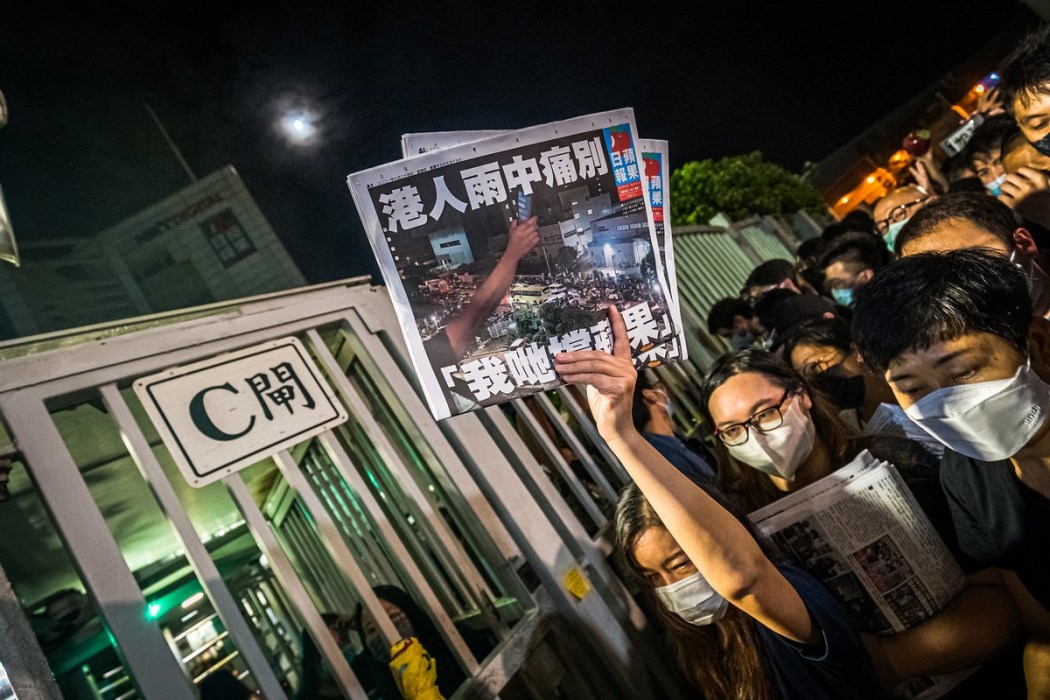
In the wake of these events, Lee’s research team conducted 43 in-depth interviews with journalists and editors from 12 media outlets in the first half of 2022. Amid a rise in self-censorship – once a taboo newsroom topic that is now more openly discussed and debated – Lee also identified a strong sense of resilience.
Journalists have developed various ways of assessing risks, such as studying the law and relevant court cases, staying alert to everyday “signals,” and evaluating situations based upon knowledge of mainland China’ s political system and how it has handled dissidents.
Some journalists said they had made a “conscious choice” to reduce risk through minimal or “acceptable” self-censorship, Lee said. That might include carefully selecting which words to use when reporting on more sensitive topics, or incorporating soft news to show “the outlet did not confront the government all the time.”
One journalist told the research team that his outlet used the term “typhoon protection measures” to describe procedures employed when covering the anniversary of the 1989 Tiananmen crackdown. For example, when covering activists’ speeches, they would choose neutral terms to avoid being perceived as advocating on anyone’s behalf.
For decades, Hong Kong was the only place on Chinese soil where events to honour those killed when the People’s Liberation Army dispersed protesters in Beijing on June 4, 1989, were allowed. However, the annual candlelight vigil in Causeway Bay was not permitted amid the Covid pandemic, and monuments to commemorate the victims have been removed from university campuses. This year passed without any formal observances.
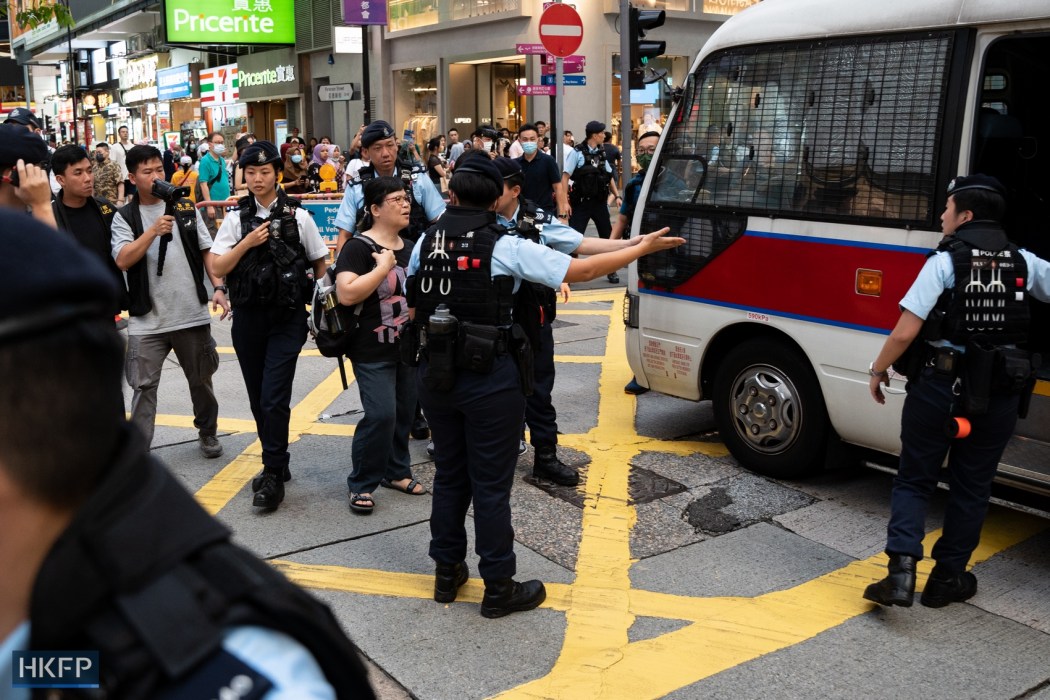
“What we can see is an ongoing negotiation through which journalists try to reconcile the pressure to self-censor with their sense of professionalism,” Lee wrote in the paper published in July, arguing that this process was essential in “preventing risk management from becoming sheer risk avoidance.”
Sometimes media outlets did take risks even after assessing the pressures. One editor told the research team that their outlet had considered taking down some articles after authorities accused Stand News of sedition; during the trial opinion pieces, profiles and articles – 17 items in total – were identified as evidence of “seditious” materials.
In the end, editors of the outlet decided against removing any content. “Because they did not want to send the wrong signal and exacerbate the trend of society-wide self-censorship,” according to the research paper.
Hanging in the balance
Hong Kong has seen a drastic decline in press freedom, according to an international index compiled by Reporters Without Borders. It dropped to 148th in 2022 from 80th in 2021 before rising eight places to 140th in 2023 – still near the bottom.
Separately, the Hong Kong Journalists Association’s Press Freedom Index dropped to new lows last year, with journalists saying they were hesitant to criticise the central government.
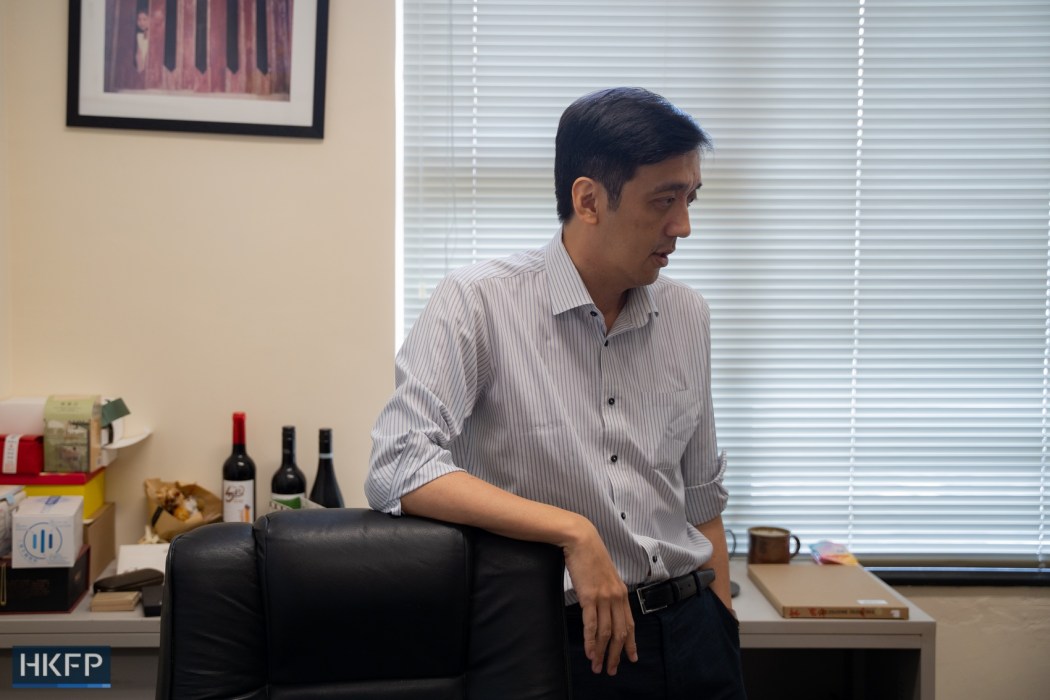
While freedom of the media was low, Lee said the situation had “reached a balance” this year as there had been no new legal cases launched against media organisations or reporters. Additionally, independent media outlet The Collective was launched and existing ones, such as InMedia, remained in operation.
“Every authoritarian country tries to reach a balance in the end. Through suppressing some voices to [what authorities see as] an acceptable level, other voices and media, which do not have great influence, can exist for a while,” Lee said. “That’s what already happened in Hong Kong.”
“But looking into the future, questions remain over whether space [for freedom] will continue to shrink. And this is something you can’t anticipate,” Lee said. “Just like whether there will be a war with Taiwan, it is subject to the nation’s policy, and the changing international landscape.”
‘Earned through actions’
In a process typical of Hong Kong families in the 1990s, Lee moved with his parents to Canada, before returning in 2003 after obtaining a PhD in political communications from Stanford University in the US.
“Things just unfolded naturally,” Lee said. That year, he witnessed around 500,000 Hongkongers rally against Article 23 – Hong Kong’s own national security law – and became interested in studying civil society, social movements and their interactions with the media.
He did not anticipate the surge in protest movements over the 20 years that followed, as more people began to pay attention to public affairs.
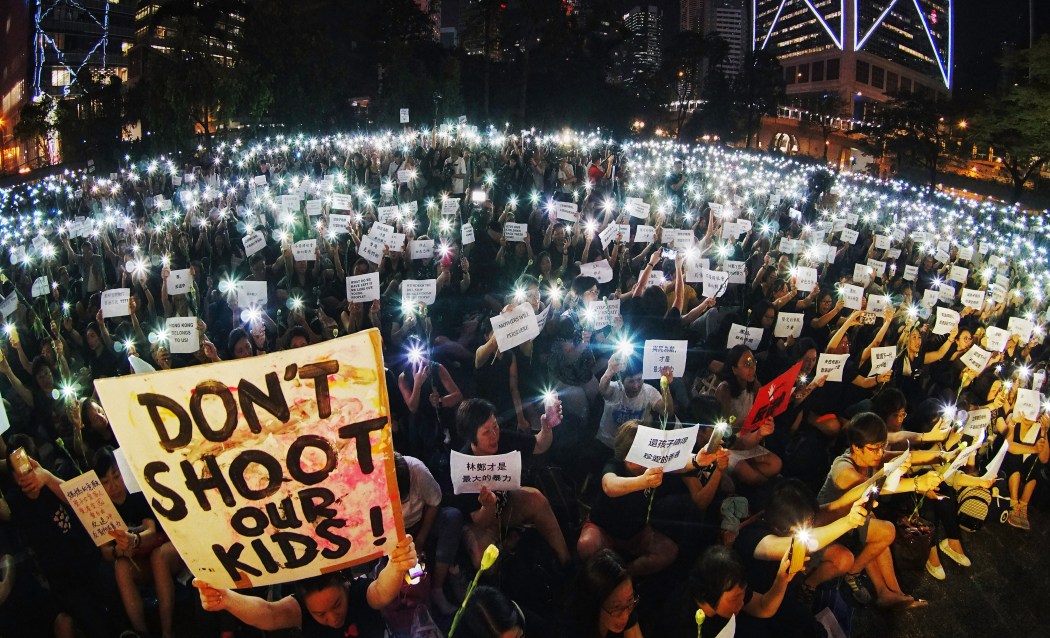
Over time, he began giving frequent interviews and sharing his findings with the press. Since 2014, he has been a regular Ming Pao contributor, and even with public debate muted, Lee speaks.
He told local media that the city could no longer tolerate satire after a long-running political cartoon strip by Zunzi was axed by Ming Pao in May. In August, he appeared on an online radio show hosted by democrat Emily Lau, saying: “it is normal and reasonable for journalists to ask critical questions. That’s their responsibility.”
Lee said he could not turn down interview requests linked to press freedom and media development because those were his professional areas of expertise and interest. “I just can’t honestly say this is none of my business,” Lee told HKFP.
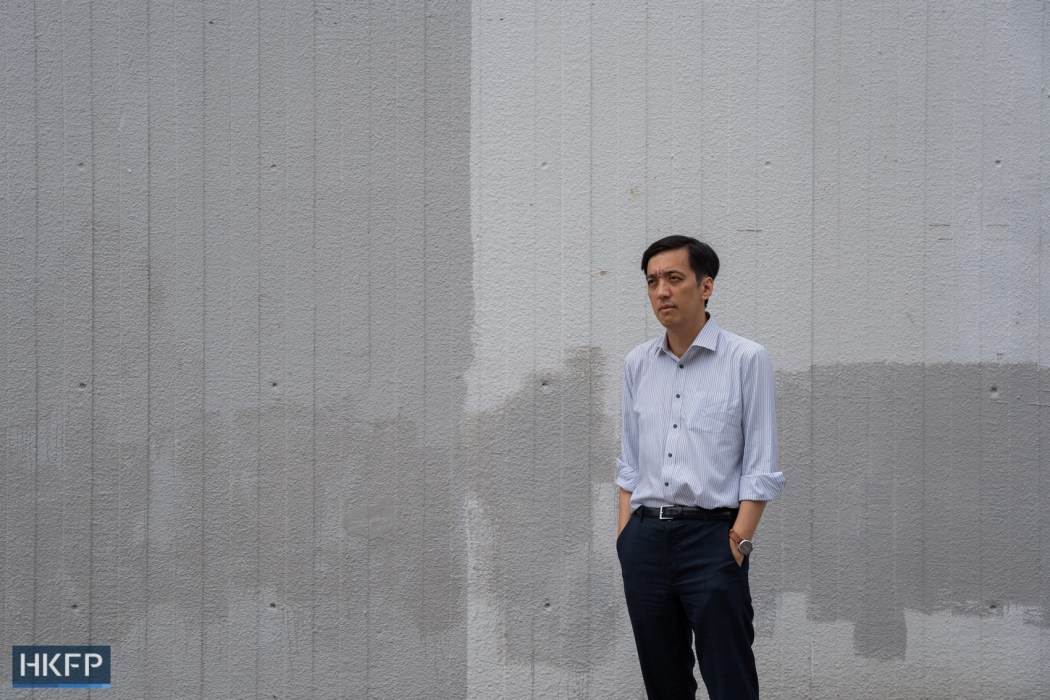
He is frequently asked if he intends to leave Hong Kong in the near future. His answer is always the same: “never say never.” Currently some of his family have settled in the UK while some remain in Canada.
But he still feels he “can do something“ in Hong Kong, at least for now.
When a publisher approached him about writing a book to promote journalism to the public, Lee said yes without hesitation. While he did not see any risk in sharing his findings in a book, when it came to giving a talk at the Hong Kong Book Fair in July, Lee said he started to worry.
“It’s an open venue and you just can’t control what questions will be thrown at you. Later, I decided to give it a try.”
The risk paid off, and the event went smoothly.
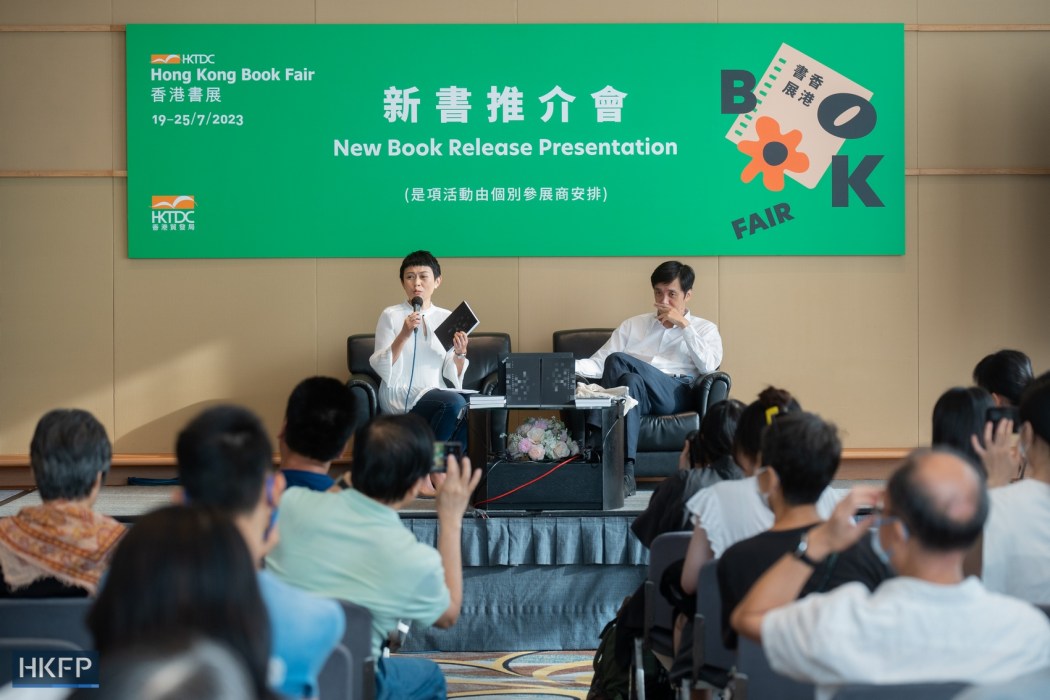
“You can’t always completely eliminate concerns or worries. But if you don’t go ahead and do something, you won’t do anything. So you just have to try and be careful.”
This year he has visited universities in Denmark and Japan to talk about the state of press freedom in Hong Kong. He has also taken a sabbatical, travelling between Taipei, Vancouver and Hong Kong.
At a bookstore in Taiwan’s capital, he recently shared his observations and findings on Hong Kong’s media landscape.
When prompted, he introduces himself as “a scholar supporting democratic movements.”
“But you have to be careful with your words, avoiding any chance of being mistaken as linked to Hong Kong independence, and never answering questions such as: ‘what can we do overseas [to support Hong Kong]?’”
Ultimately, the space to speak out shifts constantly, he wrote in his book.
“When reports on certain genres and topics disappeared, we know that some space no longer exists. When a reporter published a serious piece, we saw space for journalism. Profession and liberty are things earned through actions.”
Support HKFP | Policies & Ethics | Error/typo? | Contact Us | Newsletter | Transparency & Annual Report | Apps
Help safeguard press freedom & keep HKFP free for all readers by supporting our team

LATEST FROM HKFP
HKFP has an impartial stance, transparent funding, and balanced coverage guided by an Ethics Code and Corrections Policy.
Support press freedom & help us surpass 1,000 monthly Patrons: 100% independent, governed by an ethics code & not-for-profit.
Support HKFP | Policies & Ethics | Error/typo? | Contact Us | Newsletter | Transparency & Annual Report | Apps
Help safeguard press freedom & keep HKFP free for all readers by supporting our team

LATEST FROM HKFP
HKFP has an impartial stance, transparent funding, and balanced coverage guided by an Ethics Code and Corrections Policy.
Support press freedom & help us surpass 1,000 monthly Patrons: 100% independent, governed by an ethics code & not-for-profit.


